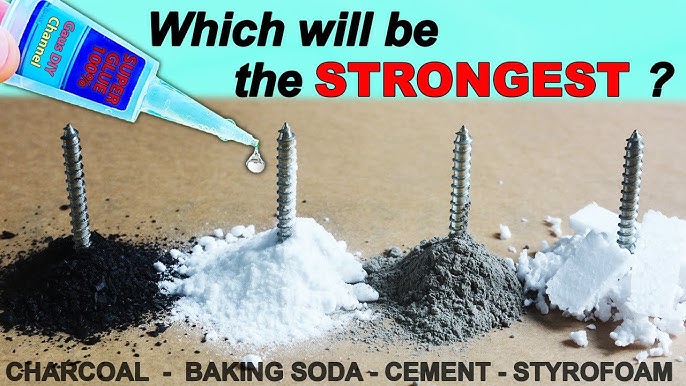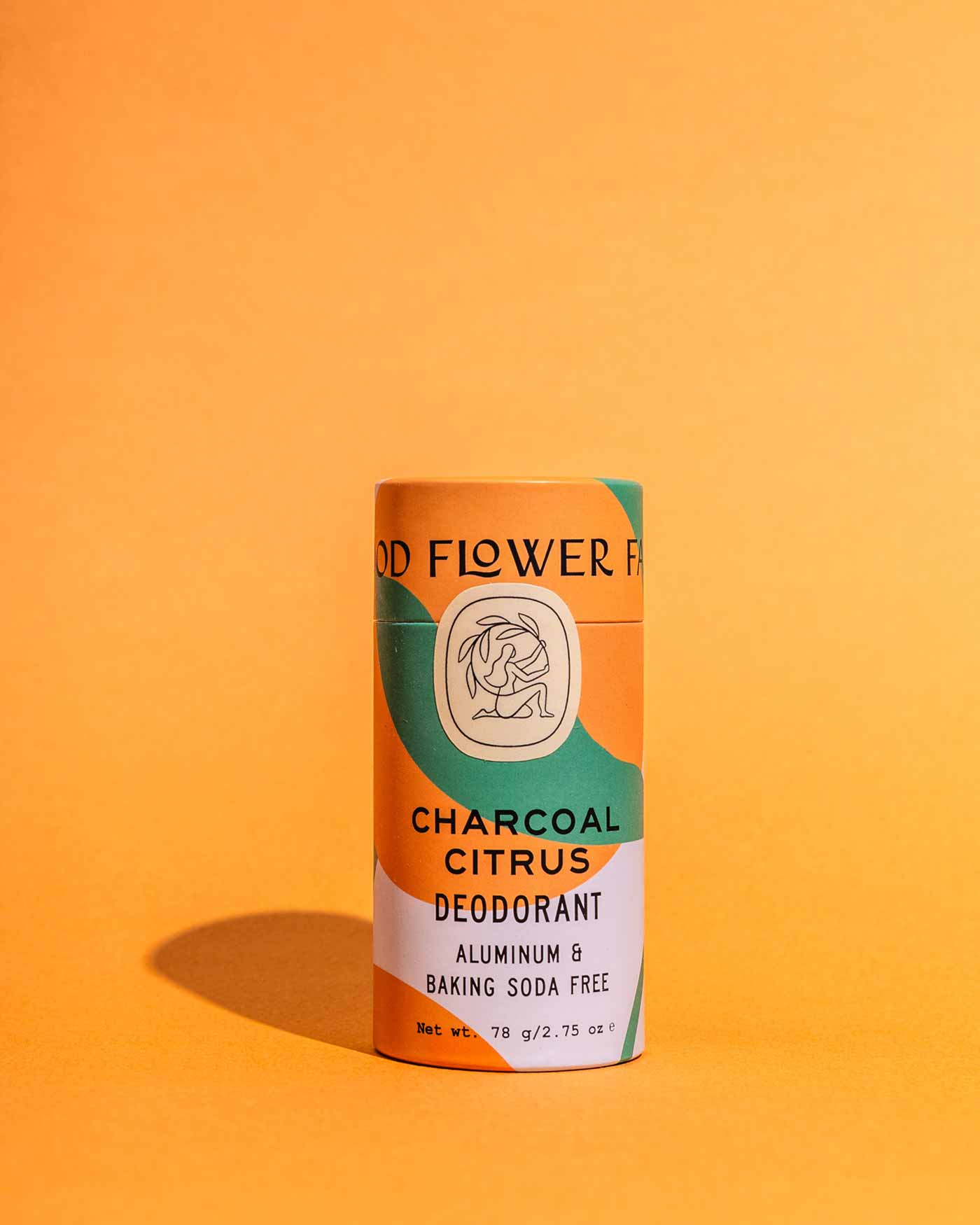Are you curious about the best way to achieve a brighter, healthier smile? If so, you’re not alone.
With countless products and remedies flooding the market, it can be overwhelming to choose the right one for your dental care routine. Two popular contenders that often come up in the quest for whiter teeth are charcoal and baking soda.
Each boasts a unique set of benefits and has its loyal followers, but which is truly the best for you? We’ll dive into the world of dental care, weighing the pros and cons of charcoal and baking soda. By the end, you’ll have a clear understanding of which option aligns with your goals and needs. So, if you’re ready to discover the secrets behind these two powerful whitening agents, keep reading. Your perfect smile might just be a few paragraphs away.

Credit: www.youtube.com
Charcoal For Teeth Whitening
Charcoal for teeth whitening has become a buzzworthy topic in recent years, with many people swearing by its ability to brighten smiles. You might have seen those dramatic before-and-after photos online, or even heard your friends rave about their charcoal toothpaste. But how does charcoal actually work? What are its benefits? And are there any risks you should be aware of? Let’s take a closer look.
How Charcoal Works
Activated charcoal is the star of the show here. Unlike the charcoal you’d use for a barbecue, activated charcoal is processed to have small pores that increase its surface area.
These pores help trap toxins and impurities, making it effective for removing stains from your teeth. Just like a magnet attracts metal, activated charcoal absorbs the discoloration on your enamel.
This is why many people see a noticeable difference in their smile after using charcoal products. But does it work for everyone? Try it yourself and see the results!
Benefits Of Charcoal
Using charcoal for teeth whitening has several advantages. Firstly, it’s natural. You won’t find any harsh chemicals here, which can be a relief if you’re cautious about what you put in your mouth.
Charcoal also has antibacterial properties. This means it can help reduce bacteria in your mouth, potentially leading to fresher breath and a healthier oral environment.
Plus, it’s easy to use. Whether in powder form or mixed into toothpaste, you can conveniently add it to your daily routine. Have you considered making the switch?
Potential Risks Of Charcoal
While charcoal is popular, it’s essential to be aware of its drawbacks. Overuse can lead to enamel erosion. This is because charcoal is abrasive, which might wear down your teeth if used too frequently.
Enamel erosion can lead to sensitivity, making your teeth more prone to pain when consuming hot or cold foods. Are you willing to risk that for whiter teeth?
Moreover, there’s a chance it might not remove deep stains effectively. If your discoloration is due to underlying issues, charcoal might not be the miracle cure you’re hoping for.
Considering these aspects, would you opt for charcoal or is baking soda a safer bet for your teeth?
Baking Soda For Teeth Whitening
Charcoal and baking soda are popular for teeth whitening. Baking soda gently removes stains and plaque, offering a brighter smile. Charcoal can also whiten teeth but may be abrasive, risking enamel damage. Both options have pros and cons for achieving a whiter smile.
Are you curious about achieving a brighter smile using everyday items from your kitchen? Baking soda has been a popular choice for teeth whitening, offering a simple, cost-effective method to enhance your dental routine. Let’s delve into how baking soda can work wonders for your teeth, its benefits, and the potential risks you should be aware of.How Baking Soda Works
Baking soda, also known as sodium bicarbonate, is a mild abrasive. This means it can scrub away surface stains on your teeth. When you brush with baking soda, its alkaline nature helps neutralize acids in your mouth, creating an environment less conducive to bacterial growth. This can lead to fresher breath and less plaque build-up. Many people find that using baking soda leaves their teeth feeling smoother and cleaner. Have you ever noticed a difference after trying it yourself?Benefits Of Baking Soda
Baking soda is inexpensive and widely available, making it an accessible option for many. It’s a natural product, free from the chemicals found in some commercial whitening products. Additionally, its ability to neutralize acids can help in maintaining healthier gums. Some users even report a noticeable improvement in their tooth color after regular use. If you’re looking for a more natural approach to oral care, baking soda could be worth considering.Potential Risks Of Baking Soda
Despite its benefits, it’s important to use baking soda cautiously. Overuse can lead to enamel erosion because of its abrasive nature. Enamel does not regenerate, so preserving it is crucial. Baking soda doesn’t contain fluoride, which is important for strengthening teeth and preventing cavities. Consider using it alongside a fluoride toothpaste. Have you thought about how often you should use baking soda for brushing? Moderation is key to avoid possible damage while still reaping its benefits. By understanding both the benefits and risks, you can make an informed decision about adding baking soda to your dental care routine. Have you tried baking soda for teeth whitening, or are you considering it now?Comparing Charcoal And Baking Soda
When it comes to maintaining oral hygiene, both charcoal and baking soda have gained popularity. These natural alternatives promise whiter teeth and fresher breath. But how do they truly compare in terms of effectiveness, safety, and cost? Let’s dive into the details and see which one might be the better fit for your needs.
Effectiveness Comparison
Charcoal is known for its ability to absorb toxins and impurities, making it a popular choice for teeth whitening. Users often report a noticeable difference in the brightness of their teeth after just a few uses. However, it can be abrasive, potentially leading to enamel erosion over time.
Baking soda, on the other hand, has been a trusted household staple for generations. It gently removes surface stains while neutralizing acids in the mouth. Though it may take a bit longer to see dramatic results compared to charcoal, it’s less likely to damage your enamel.
Which one do you trust more to keep your smile bright? Sometimes, the slower but steadier approach might be the way to go.
Safety Considerations
Charcoal’s abrasiveness raises safety concerns. Overuse can lead to sensitive teeth and gum irritation. It’s crucial to use it sparingly and consult with your dentist.
Baking soda is generally safer for regular use. It’s less abrasive and has a long history of safe application in dental care. However, it’s essential to ensure you’re using it correctly to avoid any potential harm.
Would you risk your dental health for a quick fix, or would you prefer a time-tested remedy with fewer risks?
Cost And Accessibility
Charcoal products often come with a higher price tag. Specialty toothpaste and powders can be costly, and not everyone has easy access to them.
Baking soda, in contrast, is widely available and budget-friendly. You can find it in nearly any grocery store, and its affordability makes it a practical choice for many households.
When it comes to balancing your budget and dental care, which option aligns better with your lifestyle?
By comparing these two natural options, you can make an informed decision that suits your dental routine and personal preferences. Whether you choose charcoal or baking soda, consistency is key. Your smile deserves the best care, so choose wisely!

Credit: www.evolutiondental.ca
Alternatives To Charcoal And Baking Soda
Charcoal and baking soda are popular for teeth whitening. But there are other effective methods. Some are professional, while others are natural. Each offers unique benefits for a brighter smile.
Professional Whitening Treatments
Professional treatments give quick results. Dentists use advanced techniques. Laser whitening is popular. It uses light to activate a whitening gel. It’s fast and effective. Another option is bleaching trays. Custom-made for your teeth, they ensure even whitening. These treatments are safe under expert supervision.
Natural Whitening Solutions
Natural solutions are gentle on teeth. They avoid harsh chemicals. Oil pulling is an ancient method. Swishing coconut oil cleans teeth and gums. It can reduce stains. Another natural option is eating crunchy fruits. Apples and carrots scrub away plaque. They also boost oral health. These methods are easy and can fit into daily routines.
Tips For Safe Teeth Whitening
Many want brighter teeth. Some try charcoal or baking soda. Both can whiten teeth. But safety is important. Using these methods carefully is key.
Charcoal and baking soda are popular. They can be abrasive. Knowing how to use them safely helps avoid damage. Here are safe tips for using charcoal and baking soda.
Consulting Dental Professionals
Always talk to a dentist first. Dentists know the best methods for whitening. They check teeth health. They recommend safe products. Dentists help avoid harm. Their advice keeps teeth strong.
Maintaining Oral Health
Whitening is only part of oral care. Brush twice daily. Use fluoride toothpaste. Floss regularly. Visit your dentist often. Keep gums healthy and teeth clean. Good habits prevent problems.
Healthy habits make whitening safer. Charcoal and baking soda need careful use. They can clean teeth well. But oral health comes first. Clean teeth last longer.

Credit: goodflowerfarm.com
Frequently Asked Questions
What Are The Uses Of Charcoal And Baking Soda?
Charcoal purifies air and water. Baking soda cleans surfaces and deodorizes. Both whiten teeth naturally.
Which Is Better For Teeth Whitening?
Charcoal removes stains effectively. Baking soda is gentle but slower. Both can improve teeth appearance.
Can Charcoal And Baking Soda Mix Safely?
Yes, they can mix. They enhance cleaning and deodorizing effects. Use moderate amounts for safe results.
Do Charcoal And Baking Soda Have Health Benefits?
Charcoal detoxifies and absorbs toxins. Baking soda aids digestion and soothes skin. Both offer health advantages.
Is Baking Soda Abrasive To Teeth?
Baking soda is mildly abrasive. Safe for occasional use. Avoid excessive use to prevent enamel damage.
Conclusion
Charcoal and baking soda offer unique benefits for oral care. Charcoal helps remove surface stains. It can brighten teeth naturally. Baking soda fights bacteria and bad breath. It gently cleans teeth. Both options are affordable and easy to use. But, they work differently.
Choose based on your specific needs. Consider your sensitivity and preferences. Charcoal may be abrasive for some. Baking soda is milder. Both can fit into a healthy oral routine. Consult with a dentist for personalized advice. Keep your smile bright and healthy with the right choice.





